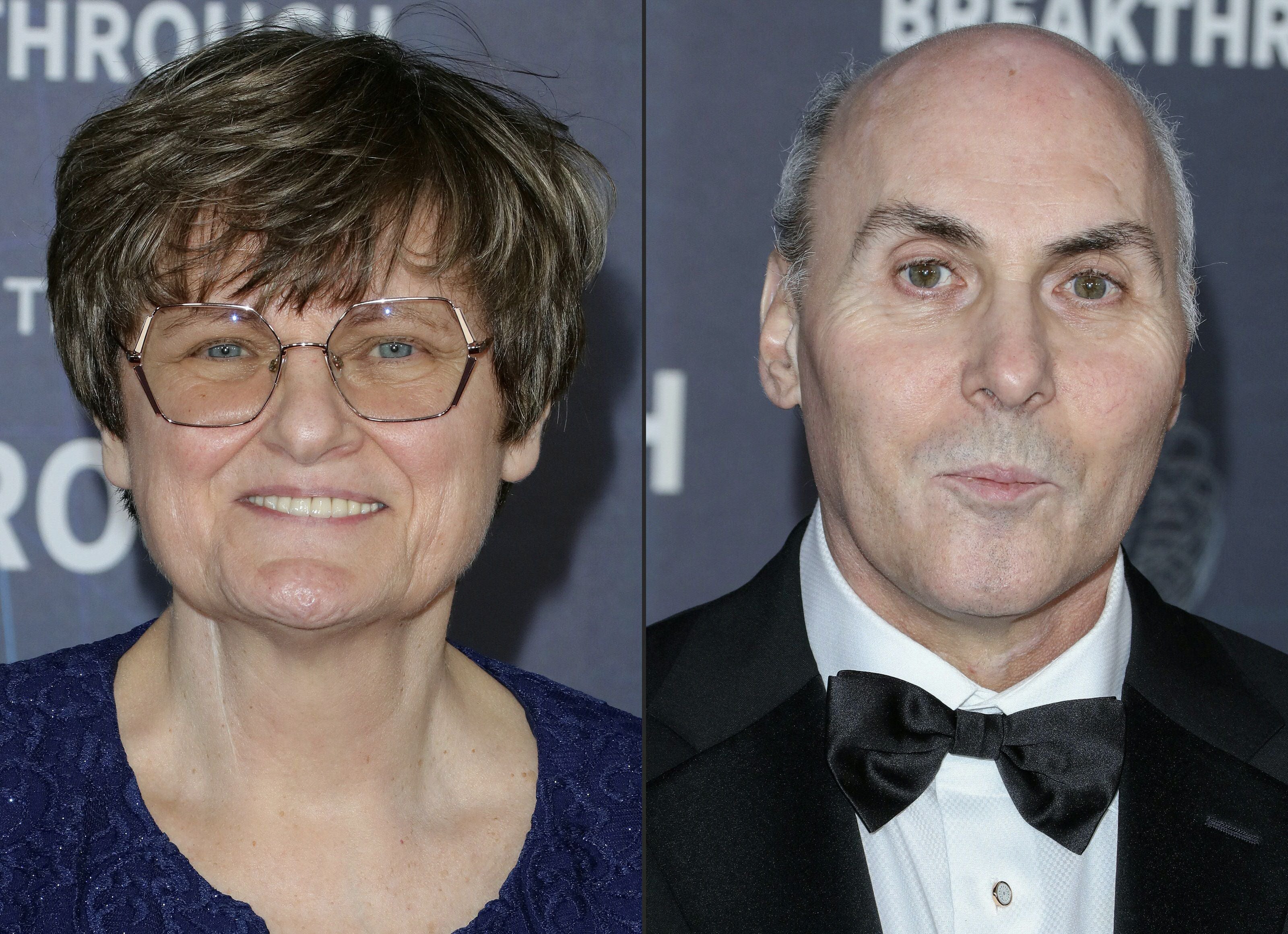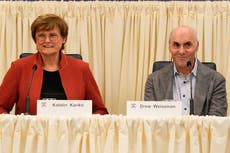University of Pennsylvania slammed for celebrating Nobel prize of vaccine researcher it once demoted
University once reportedly discouraged Katalin Karikó from pursuing mRNA research that later helped create Covid vaccines
The University of Pennsylvania has been criticised for celebrating the Nobel prize win of Drew Weissman and Katalin Karikó for their work on vaccines as it once allegedly encouraged the latter from pursuing her signature research or risk losing tenure.
The pair won the prestigious prize for their work on mRNA and its potential in vaccines, developments that later were key parts of the rapid creation of multiple companies’ Covid vaccines.
After the prize was announced, the University of Pennsylvania celebrated the win publicly, referring to the two as “Penn’s historic mRNA vaccine research team”.

Though both researchers remain associated with the university – Dr Weissman as a professor of vaccine research and Dr Karikó as an adjunct professor of neurosurgery – some argued Penn was taking false credit for a research project it once discouraged.
In 1995, when research on mRNA vaccines was still in its earlier stages, the university allegedly discouraged Dr Karikó from pursuing her work and demoted her from a faculty position.
“They told me that they’d had a meeting and concluded that I was not of faculty quality,” she told WIRED. “When I told them I was leaving, they laughed at me and said, ‘BioNTech doesn’t even have a website’.”
”It was particularly horrible as that same week, I had just been diagnosed with cancer,” she said.
“I was facing two operations, and my husband, who had gone back to Hungary to pick up his green card, had got stranded there because of some visa issue, meaning he couldn’t come back for six months. I was really struggling, and then they told me this.”
In 2013, Dr Karikó left her lab at the university’s school of medicine to join BioNTech, a pharma firm which helped develop one of the leading Covid vaccines.
“In the future, this lab will be a museum,” she reportedly told the school, according to a profile in Glamour. “Don’t touch it.”
“Where is the damn apology @Penn ???” Dr Eric Feigl-Ding, an epidemiologist and health economist at New England Complex Systems Institute, wrote on X under a university statement about the Nobel.
“@Penn should stop making these misleading celebrations,” added Pradeep Raamana, a neuroscientist with the Open Mins Lab.
“Did they just claim Katalin Karikó as a Penn affiliated Nobel Prize winner after refusing her tenure in 1995 for not being ‘faculty quality’? Where’s the apology?” wrote Nooshin Samimi, a PhD Candidate at UPenn Anthropology.
“Yeah, definitely could have read the room on this one,” wrote astrobiologist Graham Lau on X.
“@penn isn’t looking good for their part in the whole story. If anything, your institution is coming out looking like it should issue a very sincere apology and accept some responsibility for the kinds of problems that drive so many away from academia these days.”
The Independent has contacted University of Pennsylvania for comment.



Join our commenting forum
Join thought-provoking conversations, follow other Independent readers and see their replies
Comments